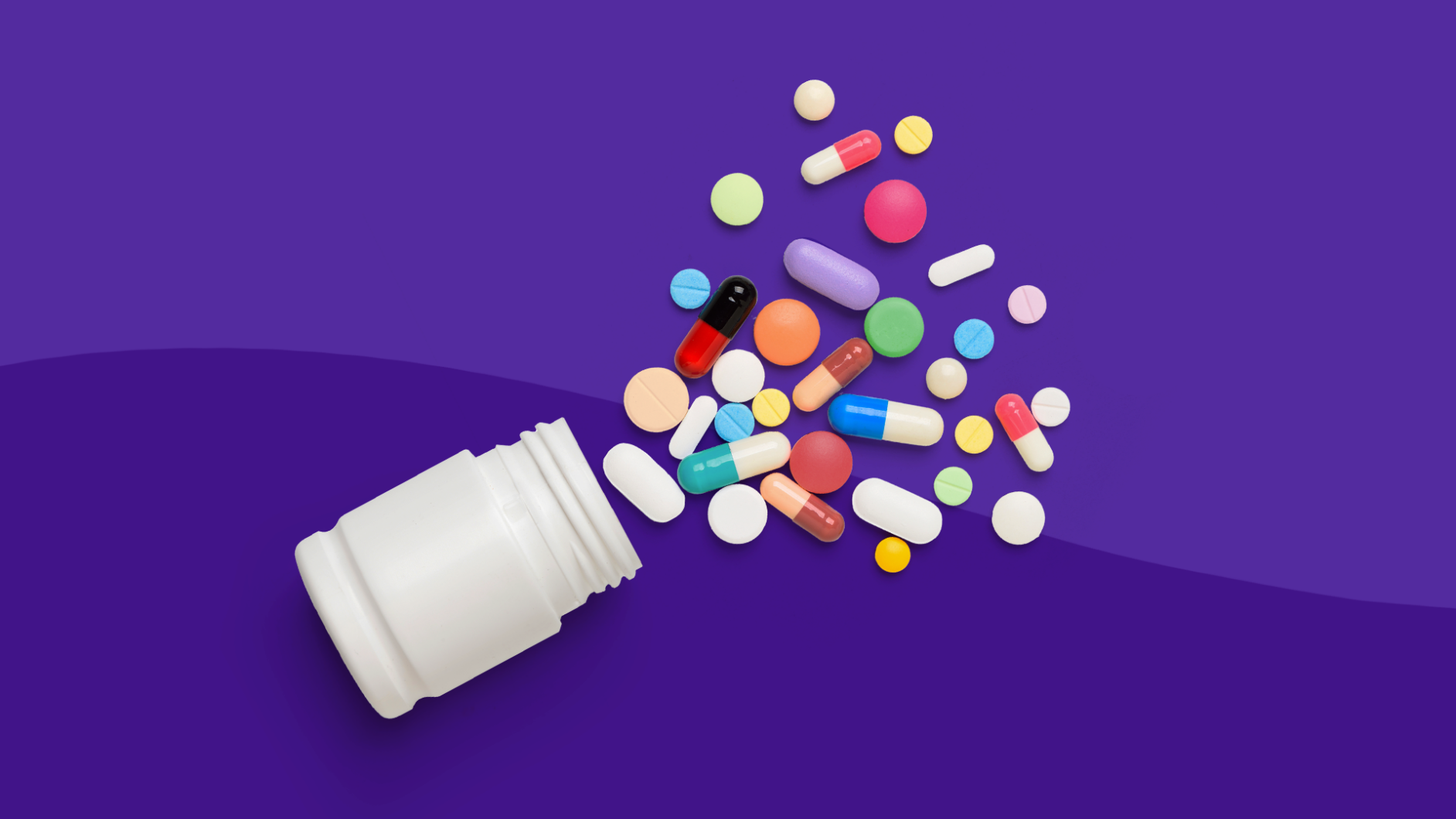Key takeaways
Generally speaking, prednisone and antibiotics can be taken together without the chance of a medical emergency, especially if they’re combined for only a short time.
Taking the two can be especially beneficial when treating certain bacterial infections.
A possible side effect of combining these two medications—especially if for a long time—is a hit to the immune system.
Talk to your healthcare provider about your health history before taking both of these meds. Also, if you notice any changes after taking these medications, let your provider know.
A GP or pharmacist can share need-to-know information with patients, like whether it’s safe for them and how to store the medications (hint: at room temperature).
Prednisone is a corticosteroid that treats various conditions, such as asthma, inflammation responses, and more. It reduces swelling and immune system reactions. Antibiotics, on the other hand, treat bacterial infections.
These prescription drugs can usually be taken together safely if they’re prescribed together. Ahead, read need-to-know information about the combination, such as its efficacy, safety, side effects, and interactions.
Can you take prednisone and antibiotics together?
Patients are probably good to go with both of these meds. “These two types of medications are generally safe when taken together,” says Dr. Justine Park, MD, a board-certified dermatologist at Skin and Beauty Center. (Fun fact: Did you know dermatologists prescribe antibiotics more than any other specialty doctor?)
While combining the two can be safe, there is nuance. “For example, the body of literature in an acute sinus infection shows that corticosteroids in combination with antibiotics can resolve symptoms more quickly,” says Dr. Luke Hentrich, Pharm.D., BCPS, an assistant professor who answered the questions in conjunction with Hannah Suber, a Pharm.D. candidate, both at the University of Tennessee’s Health Science Center College of Pharmacy. “However, corticosteroids can suppress your natural immune response and should not be taken longer than prescribed for an acute bacterial infection.”
While there’s an added level of risk by combining these medications, there’s also an added level of benefit.
Are there any benefits of taking prednisone with antibiotics?
Again, taking prednisone with antibiotics can be extra helpful in the medical treatment of certain conditions. Dr. Park mentions the example of poison oak-induced allergic contact dermatitis that gets infected after scratching it, and Dr. Hentrich mentions acute bacterial infections.
“Prednisone may improve the time to resolution of symptoms,” he clarifies. Research also shows that treating some conditions with prednisone and antibiotics leads to faster healing.
However, there’s not necessarily a reason to take both otherwise. “They are used together when needed, but they are used to treat different conditions, so generally they are not used together,” Dr. Park says.
In fact, taking both can worsen symptoms, according to Dr. Hentrich. “Some patients may be more susceptible to worsening infection depending on their medical conditions, concurrent prescription medications, etc,” he warns. So again, talking with a provider first is a must.
Are there any known interactions between prednisone and antibiotics?
Medical staff must take caution when prescribing these medicines. Dr. Park explains why. “If treating a bacterial infection, we generally would avoid the use of prednisone as it would be undesirable to blunt the body’s natural immune response in fighting an infection,” she says. “However, if there is a concomitant inflammatory process, prednisone should be used so the patient can recover quickly.” (“Concomitant inflammatory process” essentially means inflammation and infection exist simultaneously.)
Dr. Hentrich expands on how that could be damaging, saying it “could make the infection more difficult to treat with antibiotics.” He adds, “This could also be of concern if the patient has a medical condition that requires long-term corticosteroid treatment or places the patient at a higher risk of complicated infections, such as rheumatoid arthritis or cancer.”
Additionally, it’s vital to know what interacts badly with prednisone. Drug interactions include NSAIDs, diuretics, diabetes medications, estrogen medications, blood thinners, macrolide antibiotics, certain tuberculosis drugs, and more. Avoid alcohol while taking this medication, as well, since it can heighten the risk of side effects, such as infections, gastrointestinal problems, blood pressure changes, mood alterations, and more.
Before taking this medication, tell a doctor if you have kidney problems, liver cirrhosis, adrenal gland problems, heart failure, high blood pressure (hypertension), osteoporosis, blood clots, diabetes, thyroid problems, mental health conditions, muscle disorders, a stomach/bowel illness, or an active infection.
Other contradictions of prednisone include patients who have had an allergic reaction to prednisone and the presence of systemic fungal infections. Live vaccines should also be avoided if you’re takinglarge, immunosuppressive prednisone doses.
How long after taking prednisone can you take antibiotics?
The typical prednisone dosage for adults is 5 mg to 60 mg a day in tablet or liquid form. The “right” timing varies for each person. “I usually dose prednisone in the morning only, but dosing schedules vary greatly,” Dr. Park says. “Antibiotics are dosed anywhere from daily to four times a day, depending on which antibiotic is prescribed.”
Dr. Hentrich agrees that the time of day matters to an extent. “Based on prednisone’s mechanism of action, it will work throughout the day, regardless of when the medication is taken, and can be taken at any time with antibiotics,” he says. “However, it is best to take prednisone in the morning to prevent the short-term side effects of the medication, which can include jitteriness and insomnia.”
Prednisone dosage and antibiotic dosage generally depend on the patient’s weight and any other coexisting medical conditions, Dr. Park says. Further, any steroid use that lasts a long time must be considered, according to Dr. Hentrich (There’s a reminder to pay special attention to the directions that doctors and pharmacists give).
You can buy prednisone and antibiotics at a reduced cost by using one of SingleCare’s prescription discount cards.
Sources
- Dermatologists prescribe the most antibiotics, but which uses are driving the trend?, Penn Medicine News (2019)
- Corticosteroid therapy in combination with antibiotics for erysipelas, The Israel Medication Association Journal (2018)
- Prednisone, Stat Pearls (2023)











